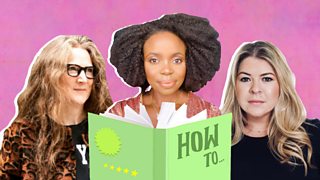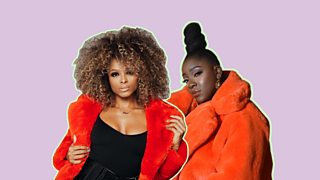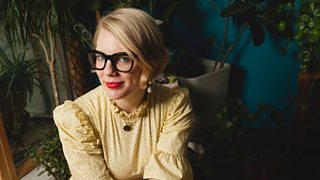Stephanie Yeboah: Fat people are not a monolith, we are not all the same
As a plus size style blogger, Stephanie Yeboah has been part of the part of the fat acceptance and body positive movement for several years.
She calls her first book, Fattily Ever After, a self-help guide and love letter to black, plus size women everywhere. She shared her experiences with Woman’s Hour and talked about some of the book’s themes, including representation in the media, what the body positivity movement is, and what still needs to change.

In the book you discuss the âsocietal privilegesâ slimmer women have. What is your experience of being a plus-sized woman?
[I’m not] saying that because somebody is smaller they automatically feel better in themselves. Because I do believe that regardless of the size you are, you can still have body image issues and have days when you don't feel good.
What I mean is bodies that can go out into the high street for instance, and automatically pick up clothes in their size. It's bodies that don't have the hassle of being stared at, being filmed, being turned into a meme, having your picture taken when you're eating, or having people not want to sit next to you on public transport. All of these little things that people take for granted when you're in a smaller body, when you're bigger you have the spotlight on you negatively almost all the time.
So there have been plenty of times when I've been in a restaurant with friends and I've seen people taking pictures of me eating, but they forgot to turn off the flash. It's happened to plus-sized friends of mine when we've been walking on Oxford Street. We have had people actually doing Instagram Live videos of me and my friends just walking across the street and they'd been laughing and joking. We've had to confront them quite viciously saying: “This is not right. This is not cool.”
What is the Body Positivity movement today?
The body positivity movement was created for plus size, black women specifically in America and then it slowly came over to the UK. As we began to see the rise in body positivity… we found that brands and publications started highlighting women within the movement who did not look like us. They started using women whose bodies were tailored more towards what society thought was beautiful, so mostly smaller women and white women.
Since 2015, we’ve seen loads of these advertisements and campaigns for body positivity, but what we’ve found is that they were featuring predominantly size 12 or size 14 white women. In a bid to be diverse they would sometimes use somebody that was mixed race or lighter skinned who was like a size sixteen - just to sprinkle a bit of colour in like parsley!
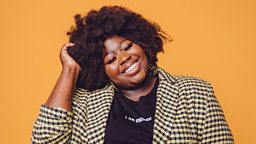
Do we talk enough about plus size black women?
Throughout Hollywood and throughout TV and movies, we see a lot of roles being played by larger plus size women as subservient roles, or as supporting characters who have no character arc. But they are there to help the main character, who is normally white, to achieve their goal, whether it's an emotional or a physical goal. We are always being cast as the help.
We also have another trope, which is the lady who nothing positive ever happens to. It's like, “All my life I've had to fight”, so it's a struggle character. If it's not an issue with their weight, it’s an issue with their colour, or it's an issue with their self esteem or job issues. Their whole character arc revolves around trying to get out of some kind of struggle. Then we have the hypersexual fat black character who is a ‘man-eater’ and is kind of animalistic and feral. We don't seem to have characters that are just normal human beings that have nice jobs, are in a nice relationship and have great friends.
What still needs to be done?
I would like to see a lot more diversity when it comes to body positivity. Fat people are not a monolith. We are not all the same. I think sometimes the media likes to portray all plus size people as being the same unhealthy people that sit down in their homes and do nothing but eat. But there are so many of us that are healthy. There are so many of us that train, we exercise, we can eat healthily, we can go through day to day without getting out of breath or feeling really sick. It’s important not to tar all people who may look the same as the same.
I think it needs to go back to what the movement was originally supposed to be. It was specifically created by larger fat women for fat women and for people whose bodies do not have the same societal privileges as everybody else. It was a safe space for us to talk about our self-love journeys and talk about clothing that we could buy, celebrate our bodies and celebrate our beauty.
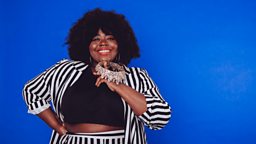
What message do you want people to take away from this movement?
I think a lot of people don't understand what we're trying to do. So a lot of people think that we are glamourising or promoting obesity, which isn't the case and has never been the case for body positivity.
What we are saying is if you do happen to find yourself being big, you don't have to consider yourself less than other people. You don't have to stop loving yourself and you don't have to think of yourself as disgusting. So it's not us encouraging people to be a certain way. It's saying if you are a certain way, you don't have to beat yourself up about it. You're still beautiful.
You can listen to the full interview on ±«Óătv Sounds, and catch up on any episodes you may have missed.
Follow us on or @bbcwomanshour.
